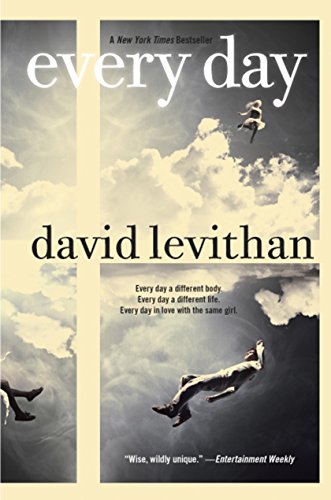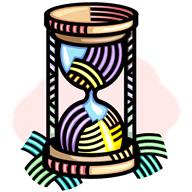 As young adult novels go, “Every Day” by David Levithan is a pleasant read. It’s one of the books that attracted me with its fascinating premise rather than its writing style, which is plain and sparse enough that the writing itself fades into the background of the story (and I’m fine with that).
As young adult novels go, “Every Day” by David Levithan is a pleasant read. It’s one of the books that attracted me with its fascinating premise rather than its writing style, which is plain and sparse enough that the writing itself fades into the background of the story (and I’m fine with that).
The main character, “A,” wakes up in a different body each day and has done so since his/her earliest memories. His sex, gender identity, race, and mental/physical health conditions change according to the body occupied for the day. I’m going to say “he/his/him” for the rest of this review because that seemed to be his usual gender identity and also for simplicity’s sake in discussing this.
There are a few spoilers below (mostly just the first bullet). Don’t say I didn’t warn you. (But after all, this is a 2012 book, right?)
Things I liked
♥ His love interest, Rhiannon, realizes that love alone isn’t always enough to make a relationship work. More young women should be emotionally and mentally strong enough to separate “want” from “not good for me.” She’s honest when she tells him that the complications of his existence aren’t part of the life she wants. (Reminds me of when I broke up with a long-ago boyfriend who was a decent enough guy but not quite right for me. He was headed toward a future I didn’t want, and I didn’t see myself living a contented life with someone who “joked” by constantly putting me down. Dominance in the relationship was a must-have for him. Also, he felt as if I had to stay with him unless I convinced him that the decision was right, as if dating implies a marital contract and I required his permission to leave.)
♥ The book explores some of the “how” puzzles and the “what if” complications that make the premise so pleasing. What if that day’s body is depressed or injured? What’s his moral responsibility to save or help that person, or at least not fuck up that person’s life with the day’s actions? Does the person whose body is occupied retain any memories? What’s it like to be a gay person and feel utterly at home in that person’s skin? What’s the range of how far he jumps into another body? What if he’s not alone? Can he learn any control of the process? Are there others like him who haven’t developed a moral compass? How much does the mind have to struggle with the body and its needs, flaws or addictions? (Quite a lot, actually.)
♥ Getting it just right: The description of jumping into a suicidal girl’s life for a day felt very real.
♥ The book leaves some questions unanswered: I like not having every conclusion spoonfed to me, so my imagination can fill in the blanks. What’s the mechanism for his consciousness jumping? What in his life led him to have a moral compass? What are his views on religion? What has helped him cope with the loneliness? How did he escape becoming mentally ill?
♥ It wasn’t a Pollyanna ending. I’m usually ambivalent about endings that aren’t heartwarming, but this one worked, at least logically. He made a selfless decision that was right for the girl he loved, a decision that was true to his values. But my heart ached for hm just a little. It was a bittersweet ending, and I wanted a glimimer of happily-ever-after possibilities for him, even in the far future. (Then again, he’s just 16. There’s a lot of life ahead.)
Things that made me think “Meh”
♦ I didn’t like the cover. It looks like a fancy ARC rather than a fully designed book. It wasn’t enough to deter me from buying it, obviously, but I wouldn’t have explored this book if not for the recommendation of a reviewer I like.
The one thing I really detested
â™ The last quarter-inch thickness of pages is a separate prequel story about the same main character. So that meant that the ending sneaked up on me. SO disappointing when I was expecting a richer closure to the book. It just STOPPED. I wanted to pinch the author and drag him back to his keyboard and say, “No, no, no, no, no. Uh-uh. Get back to work, buddy. Seriously, damn it.”
Hmmpf. I’m still miffed.

 Intro: I’m not sure this writing prompt exercise is going to be just the ticket for me; 60 seconds is pretty much a blink of the eye. But here goes with the
Intro: I’m not sure this writing prompt exercise is going to be just the ticket for me; 60 seconds is pretty much a blink of the eye. But here goes with the 

